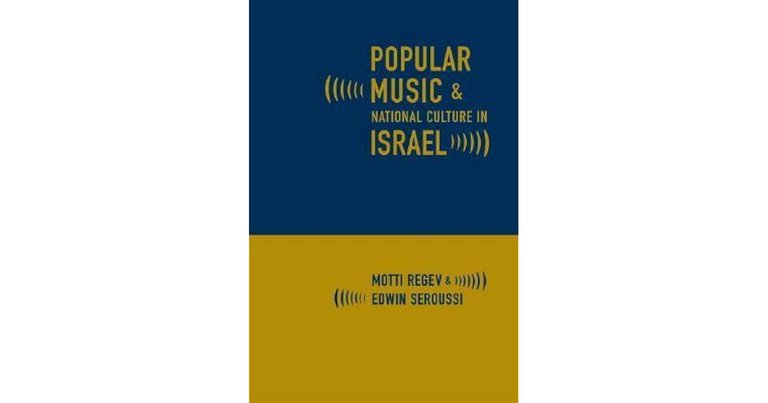Hi Everybody, My name is Adam Yodfat and I'm a musicologist writing my PhD on Israeli Popular Music. This is my first post on the topic, please feel free to write down questions and requests for further focused discussion in the comments bellow.

The founding research in the field is Seroussi's and Regev's book Popular Music and National Culture in Israel (2004). It establishes the ground theory for understanding Israeli Pop in its cultural context, roughly divided into three main stylistic categories. Each of the categories represents a key cultural identity in Israeli society, and their consecutive historical cycles of development, rise and decline reflect gradual cultural changes.
The first of these styles is SLI, which is shorthand for Songs of the Land of Israel. The style was a fundamental part of early Zionist culture and ideology since its very beginnings, so earliest songs in the style date to late 19th century (which actually predates the establishment of Pop music industry in Israel as we know it today). It reflects Zionist values and ideology through the topics of work, agriculture, settlement, nature, modernity, the revival and use of the Hebrew Language and the Zionist (armed) struggle for independence. The music was actually conceived as European-influenced imagined "folk" music of sorts, not lacking orientalist undertones. A typical example of the style would be SHIR BOKER (He: Morning Song), lyrics by Nathan Alterman and music by Daniel Sambursky.
The following musical style is termed Israeli Rock, which rose to cultural dominance during the 1970s. Most basically being Rock music sung with Hebrew lyrics, it appealed to the sensibilities of a new generation born after the foundation of the Israeli state at 1948. Reflecting a more explicitly-global musical aesthetics, the lyrics (mostly Hebrew) touched upon the cosmopolitan themes of love, subjectivity, emotions and hardships, as well as an updated (and sometimes ironic) approach to Zionist topics. A textbook example of early Israeli Rock would be Kaveret's song NATATI LAH CHAYAI (co-written and composed by Danny Sanderson and Alon Oleartchik), which reached the 7th place in the 1974 Eurovision song contest.
The third stylistic category is largely known by the name MIZRAHIT (He: oriental), and reflects the musical aesthetics of Israel's largest (as of the present moment) taste-public: Mizrahim - Israeli Jews hailing from middle-eastern and Muslim countries and territories. Suffering from class- and ethnic-based discrimination and exclusion, this group was initially left outside mainstream popular culture. The style had to struggle its way into the cultural core in a 20-year long process, which lead to its gradual (and final) acceptance by the turn of the Millennium. What started out in the 1960s as spontaneous jams in Tel Aviv's MIZRAHI neighborhoods, had turned by 1998 to be the most popular musical style in Israel - and largely remains so until this very moment from which I am writing (2018). Mixing influences as eclectic as Arab and Muslim classical traditions, SLI, global Rock and Mediterranean musics (first and foremost Greek and Turkish), a typical example of MIZRAHIT's early style is HANALE HITBALBELAH: With tounge-in-cheek lyrics set by Nathan Alterman to an old Jewish Hassidic tune, famously recorded by TSLILEI HA'UD/TSLILEI HAKEREM IN 1975 - this song sparked a flame that changed the history of Israeli culture.
This theory is very genreal and simplistic, and while the realities of Israeli cultural production are infinitely more complex - I find that this simplicity is the key strength of Seroussi's and Regev's theory. It serves as a general ground truth for a new generation of Pop music scholars,such as my colleagues and myself, to build upon and test our hypotheses and ongoing research. In this post I surveyed mostly early Israeli Pop music, and coming up next I will dive into more recent decades. Feel free to say Hi in the comments below, and let me know if there are any specific artists/periods/styles you would like me to further post about.
Let the music play and spread the love ❤
Hi Adam, nice to meet you.
a kick ass topic for a P.H.D
Thanks, Yea I like it and it is interesting... stay tuned for more :)